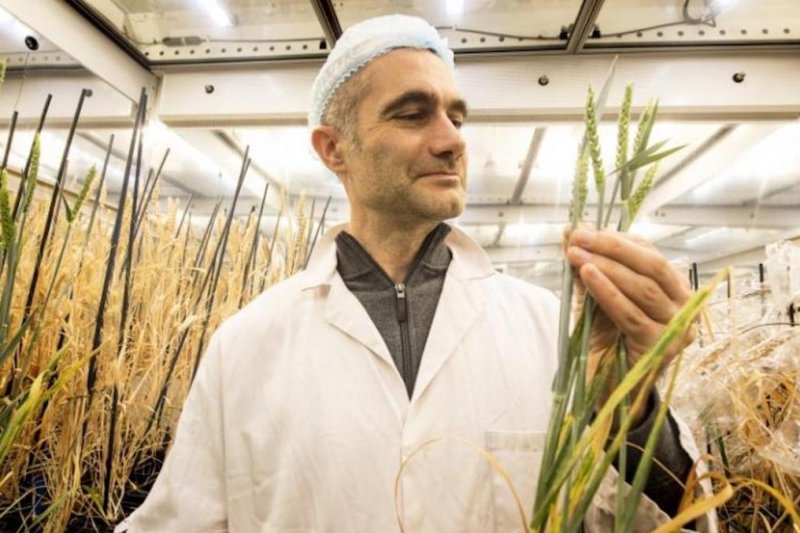New speed breeding methods allowed scientists -- including Brande Wulff, pictured -- to grow a single wheat generation in eight weeks, a threefold increase. Photo by John Innes Centre
Jan. 2 (UPI) -- Scientists in Britain and Australia have developed a new technique for speed breeding crops. The breakthrough could accelerate the pace of crop research and help scientists find more productive, resilient and adaptive varietals and hybrids.
Researchers used amplified artificial lighting and enhanced growing conditions inside a greenhouse to accelerate growth. Their technique yielded a generation of wheat, seed to seed, in just eight weeks. At such a pace, scientists could grow six generations of wheat per year.
The improved breeding speed will allow scientists to conduct research at a faster clip.
"Globally, we face a huge challenge in breeding higher yielding and more resilient crops," Brande Wulff, a researcher at the John Innes Centre in Norwich, England, said in a news release. "Being able to cycle through more generations in less time will allow us to more rapidly create and test genetic combinations, looking for the best combinations for different environments."
In recent years, crop research has struggled to deliver improved hybrids and varieties for several staple crops. Scientists hope the ability to speed breed will reverse the trend and inspire new breakthroughs.
"People said you may be able to cycle plants fast, but they will look tiny and insignificant, and only set a few seed," Wulff said. "In fact, the new technology creates plants that look better and are healthier than those using standard conditions. One colleague could not believe it when he first saw the results."
The technology uses photosynthesis-boosting LED lighting and expertly controlled environmental conditions to encourage 22-hour daily growth regimes. The methods can be scaled up or down to meet different sized greenhouses.
"Speed breeding as a platform can be combined with lots of other technologies such as CRISPR gene editing to get to the end result faster," said Lee Hickey from the University of Queensland.
Researchers detailed their breakthrough this week in the journal Nature Plants.
"I would like to think that in 10 years from now you could walk into a field and point to plants whose attributes and traits were developed using this technology," Wulff said.















